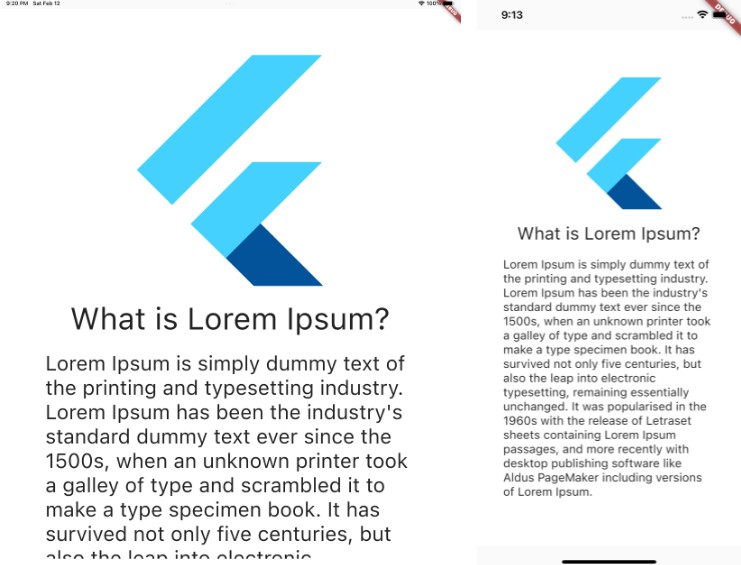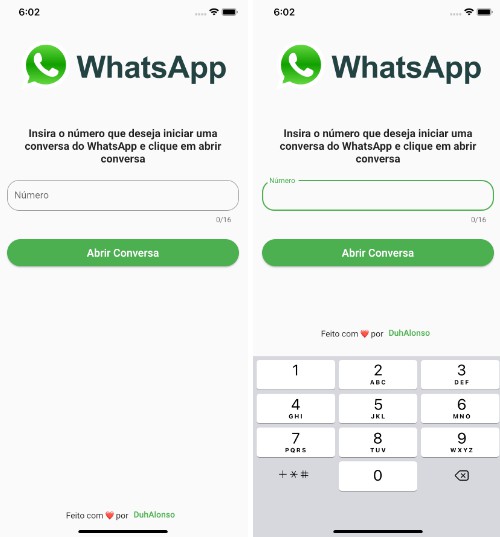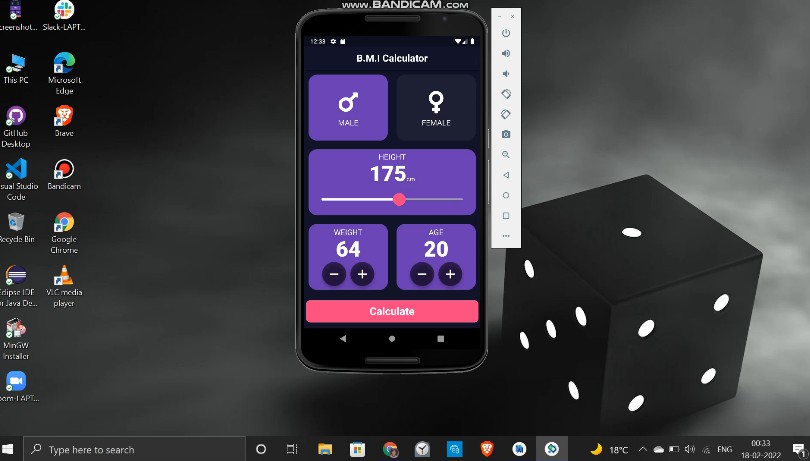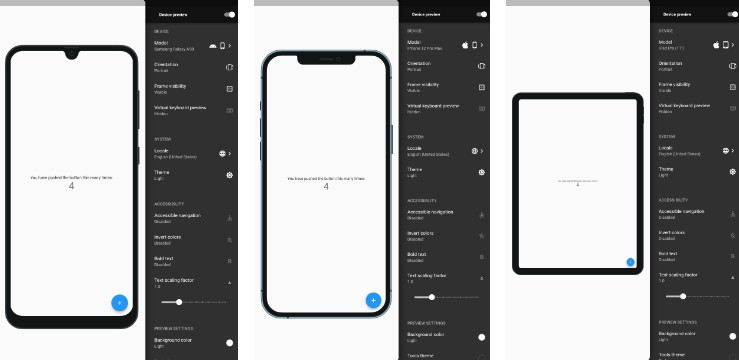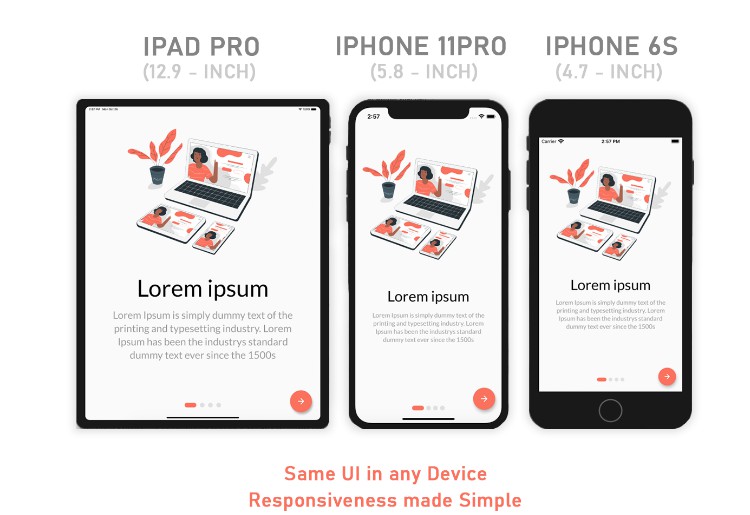ESizer
A Flutter package provide responsive, dynamic, configurable size for each device screen size.
Features
- Responsive, adaptive size
- Dynamic load size data from predefined files from assets

|

|
Without using this packages:

|
Getting Started
This package is use to develop app which use Bloc pattern clearer, quicker, easier by wrapping
complicated bloc usage.
Usage
Create size resource data file and add to pubspec
- Create size resource data files (currently support only yaml format) in default folder : ”
assets/dimens”. For example:
homeScreen:
contentPadding: 10
iconSize: 50
titleTextSize: 24
descriptionTextSize: 16
widgetSpaceSize: 16
- Add assets folder path to pubspec.yaml file:
flutter:
# ...
assets:
- assets/dimens/
Config and use in application
- Make sure
WidgetsFlutterBinding.ensureInitialized();main function before application start:
Future<void> main() async {
WidgetsFlutterBinding.ensureInitialized();
runApp(const MyApp());
}
Using widget
ESizer(
builder: (BuildContext context) {
return const ResponsiveHomePage();
},
sizeFileResolver: ({BoxConstraints? boxConstraints, Orientation? orientation}) => "phone.yaml",
)
Above code for sizeFileResolver function use very simple logic: return name of resource file. You
can also add more logic to specify how to choose which size data files to load in.
For example: load ‘phone.yaml’ or ‘table.yaml’ depend on width and orientation of device
String _resolveSizeDataFile({BoxConstraints? boxConstraints, Orientation? orientation}) {
if (boxConstraints != null) {
if (Platform.isAndroid || Platform.isIOS) {
if (orientation == Orientation.portrait) {
if (boxConstraints.maxWidth < 600) {
return "phone.yaml";
} else {
return "tablet.yaml";
}
} else if (orientation == Orientation.landscape) {
if (boxConstraints.maxHeight < 600) {
return "phone.yaml";
} else {
return "tablet.yaml";
}
} else {
return "phone.yaml";
}
} else {
return "phone.yaml";
}
}
return "phone.yaml";
}
Code generation for size data
By using command ‘esizer:generate’ you can generate dart code for more convenient
flutter pub run esizer:generate -I assets/dimens -o dimen_keys.g.dart -n DimenKeys
Then we have class like:
abstract class DimenKeys {
static const homeScreenIconSize = 'homeScreen.icon_size';
static const homeScreenTitleTextSize = 'homeScreen.titleTextSize';
static const homeScreenDescriptionTextSize = 'homeScreen.descriptionTextSize';
static const homeScreenWidgetSpaceSize = 'homeScreen.widgetSpaceSize';
static const homeScreenContentPadding = 'homeScreen.contentPadding';
}
After that, in any where in application we use it as bellow:
Container (
padding:EdgeInsets.all(DimenKeys.homeScreen_content_padding.sw),
color: Colors.white)
Issues and feedback
Create issues and add appropriate label on Github issues or into our mailing list
For more detail see CONTRIBUTING
Contributor
- Justin Lewis (Maintainer)
- dung95bk (Developer)
